|
Written By: Jessica Robinson, Leave & Care Division and Member of BUILD Juneteenth, also known as Freedom Day or Emancipation Day, commemorates the emancipation of enslaved African Americans in the United States. The holiday’s origin story begins in Galveston, Texas, which, in 1865, was the western-most area of the Union.  On June 19, 1865, Union troops arrived in Galveston with the news that more than 250,000 enslaved Black people in the state were free. This day came to be known as Juneteenth. Interestingly, these enslaved individuals had technically already been freed two-and-a-half years prior when President Abraham Lincoln issued the Emancipation Proclamation on Jan. 1, 1863. However, slaveholders in Texas had kept this information to themselves, extending the period of violent exploitation of enslaved African Americans. The significance of Juneteenth Juneteenth is a time to celebrate, gather as a family, reflect on the past, and look to the future. It is considered the longest-running holiday in African American and Black communities. The holiday’s name is a combination of the words “June” and “nineteenth,” signifying the date when news of the Emancipation Proclamation reached enslaved people in Galveston. Juneteenth became a federal holiday in 2021, after the U.S. Congress passed the Juneteenth National Independence Day Act. Celebrating Juneteenth Initially, Juneteenth was celebrated in family- and church-centered gatherings. Formerly enslaved individuals and their families would come together to commemorate this significant day. These early observances were heartfelt and intimate, emphasizing the joy of newfound freedom and the resilience of the African American community. Over the years, the informal holiday evolved into something more. Annual pilgrimages to Galveston Bay in Texas became a tradition. People would visit the site where Union troops arrived on June 19, 1865, to announce freedom to the enslaved population. These pilgrimages allowed people to connect with history and honor their ancestors’ struggles and triumphs. As Juneteenth spread across the South, it also became more commercialized in the 1920s and 1930s. Food festivals, music, and other public celebrations began to take center stage. The holiday transformed from private gatherings to community-wide events, emphasizing unity, pride, and cultural heritage. The recognition of Juneteenth as a federal holiday in the United States has signified its importance in acknowledging the legacy of slavery and celebrating African American culture and achievements. Whether you’re new to this information or someone looking to deepen their understanding, here are some ways to celebrate Juneteenth 1. Find an event in your community Check local listings for events happening near you. Here are a few: -BUILD’s 2024 Juneteenth celebration Open to all state employees June 14, 1:30 – 5:30 p.m., in-person and virtually Tivoli Fountain, Capitol Campus, Olympia For additional information, contact [email protected] -BEING’s Juneteenth celebration 2024 Open to all state employees June 13, 2 – 3:30 p.m., virtual event For additional information, contact [email protected] -Lacey’s 43rd Juneteenth Celebration June 15, 11:30 a.m. - 4 p.m. 8345 Steilacoom Road SE, Lacey Free BBQ, music, haircuts and connection. Optional: bring non-perishable food items for the Food Bank -A few Juneteenth events happening on June 19 around Seattle
- Juneteenth Celebration: A Road to Economic Freedom Community event open to all June 19, 11 a.m. – 5 p.m. Stewart Heights Park 5715 Reginald Gutierrez Ln, Tacoma Find additional information on https://www.juneteenthwa.com/. 2. Cook traditional foods
3. Support Black-owned businesses
4. Listen to Black artists and/or Watch Black TV shows and movies
5. Read books written by Black authors and poets
Remember, Juneteenth is not just a celebration. It’s a call to action and a commitment to justice for all. Happy Juneteenth! Juneteenth serves as a powerful reminder of the resilience, strength and determination of African Americans who fought for freedom and equality. As we celebrate this historic day, let us continue to learn, reflect and work toward a more just and inclusive society. “Juneteenth has never been a celebration of victory or an acceptance of the way things are. It’s a celebration of progress. It’s an affirmation that despite the most painful parts of our history, change is possible—and there is still so much work to do.” — Barack Obama Juneteenth, also known as Freedom Day, serves as a day to reflect on our journey to freedom for Black people in America. As Washington State, along with the rest of the United States of America, seeks to celebrate Juneteenth as an official holiday, our community reflects on our history and the significance of Juneteenth in this country. Many Americans are unaware that enslavement of our people did not once the Emancipation Proclamation was signed by President Abraham Lincoln in 1863. It ended two years later in 1865, when more than 2,000 troops arrived in Galveston Bay Texas to enforce the freedom that belonged to black people. The impact of delayed action from a promise that was given and not fulfilled for 2 years is an all too familiar feeling. Post-emancipation, known as Reconstruction was an era consistently references as a period great hope yet struggle, and uncertainty for Black people in America. As the reality of black people being free started to settle in, we saw racism and oppression show up in a new form. Even though black people were no longer enslaved, they were faced with issues of Black Codes and Jim Crow, known as strict laws on how to treat black people. They were put in place to deprive and strip the fundamental rights and economic growth for the Black community. In addition to the corrupt laws in place, Black people were victims of horrendous acts by white supremacy believers, whose sole purpose was to terrorize the newly freed Black people anybody or entity that supported them. America has made progress, where the Black people are concerned but we as whole still suffer from the evil that America was built upon. It is systemic and must be purged. Reflection Juneteenth is not just a moment in American history, where we only celebrate the freedom for black people. It serves as a reminder of resilience and the determination that black people continuously show. We’ve overcome, we’ve endured, we do not break. However, we deserve rest, comfort, and peace. This is a moment in history, that highlights the long journey we have traveled. A moment in history, where our community can revive their hope and strength to build a better future for not only ourselves, but those that come after. So, let us not just a celebrate on Juneteenth, let us be inspired to act and commit to the effort of establishing a world where equality and inclusion does exist. Check out photos, live streams, and news links from Washington State Juneteenth event held on June 16th, 2022. Washington State Juneteenth Celebration Photos - BUILD, Washington State Juneteenth Celebration Livestream- TVW BUILD Facebook Livestream KING 5 News Photos taken by Gary Lott Compiled by Shauna James, Washington State Health Care Authority. What is Juneteenth?
Juneteenth Significance “Juneteenth” (June Nineteenth) commemorates freedom for African Americans, and reminds us of the promises of freedom, equity, and equitable opportunity which are at the core of the American Dream. The historical legacy of Juneteenth is a good mirror of how freedom and justice in our nation has always been “delayed” for Black people. For decades waves of lynching, imprisonment, and Jim Crow laws took root. This resulted in a disproportionate impact of discriminatory policies, disparities, and a lack of economic opportunity and investment. While some progress has been made, considerable barriers still exist towards fuller equity. Thus, the importance of the recognition and observance of Juneteenth to demonstrate our commitment to diversity, equity, inclusion, and belonging The Historical Legacy of Juneteenth (June Nineteenth) 1502: The first known Transatlantic Slave Trade voyage - At least 10 million Black people were forcibly transported from Africa and sold into slavery. January 1, 1863: President Abraham Lincoln issues the Emancipation Proclamation, but some Confederate states refused to enforce this law. June 19, 1865: General Gordon Granger arrives in Galveston, Texas and announces that more than 250,000 enslaved black people were free through the Emancipation Proclamation). December 1865: The 13th Amendment to the U.S. Constitution is passed, freeing all enslaved people & abolishing slavery in the U.S. June 7, 1979: Representative Al Edwards introduces a bill declaring “Juneteenth” a state holiday - Texas was the first state to recognize the observance. June 17, 2021: President Joe Biden establishes Juneteenth, the date commemorating the end of slavery in the U.S, as a federal holiday. Key points of Governor Inslee’s Juneteenth Proclamation In his all-state communication, Governor Jay Inslee said recent events caused him to examine how persistent racism continues to impact people of color in the State of Washington, but worldwide. The proclamation is aimed at recognizing contributions of African Americans to our state and country and as a chance to reflect on progress till to be made to endure equal access and opportunity and for self-improvement and planning for a more equitable future. Juneteenth commemorates African American freedom, acknowledges the resilience and determination that African Americans have shown. Since its origin in 1865 in Galveston, Texas the observance of June 19 (Juneteenth) as the African-American Emancipation Day has spread across the US and worldwide. In his communication about the proclamation, he made a commitment to making Washington a more inclusive state and our workplace an environment where every employee is encouraged to bring their true and authentic selves to work. The proclamation makes Juneteenth a legal holiday. He urged ALL citizens to learn about the celebration and its significance in American History and the heritage of our nation. The Juneteenth Flag
On June 19th you might start seeing another red, white, and blue flag flying over our state. That banner with a star bursting in the middle is the Juneteenth Flag, a symbol of the end of slavery in the United States. The flag was created in 1997 by Ben Haith, founder of the National Juneteenth Celebration Foundation (NJCF). According to Haith the design was a deliberate process. Here’s what each element of the flag represents:
This is the Inaugural year that the state of Washington recognizes Juneteenth as a legal state paid holiday on Monday, June 20, 2022. As Black Folks and allies, we have been celebrating Juneteenth for years. This government recognition is cause for a bigger celebration. Black-Owned Business Excellence (BOBE) in partnership with The Professional Women of Color Network and many other collaborators are cultivating this recognition with a Royal Ball that reclaims Community here in Washington.
Annual Community Pillar Awards Dinner
Honoring those who have impacted and uplifted the Spokane African American Community*Tickets $25 per person or $185 per table (seats 8) Tickets sales will begin on 5/23/2022. Juneteenth is a state holiday!
Watch this space for more info as it becomes available. This event also serves as BUILD's June General Membership Meeting. Saturday, June 19th, 2021:
Event: Juneteenth Stop the Hate Rally Time: 9:00 AM Location: Heritage Park fountains Event Info: A “celebration gathering” to celebrate Juneteenth. Sign-waving, speeches, performances by young poets and singers to raise awareness around anti-Asian violence and hate. Dear fellow state employee,
Today is Juneteenth, the day we commemorate and recognize as Freedom Day for slaves in Galveston, Texas who were told they were free by Union soldiers on June 19, 1865, two and a half years after President Lincoln signed the Emancipation Proclamation that became effective in January 1863. This is a day of reflection, acknowledgement, celebration and action. From their website: You are invited to join us in observing Juneteenth also known as Freedom Day or Independence Day, is the oldest known celebration of the end of slavery in the United States.
More info below. |
AuthorSOur blog includes but is not limited to events, insights, and highlights to augment basic education. Archives
July 2024
|


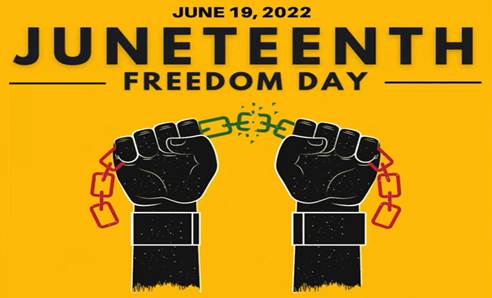


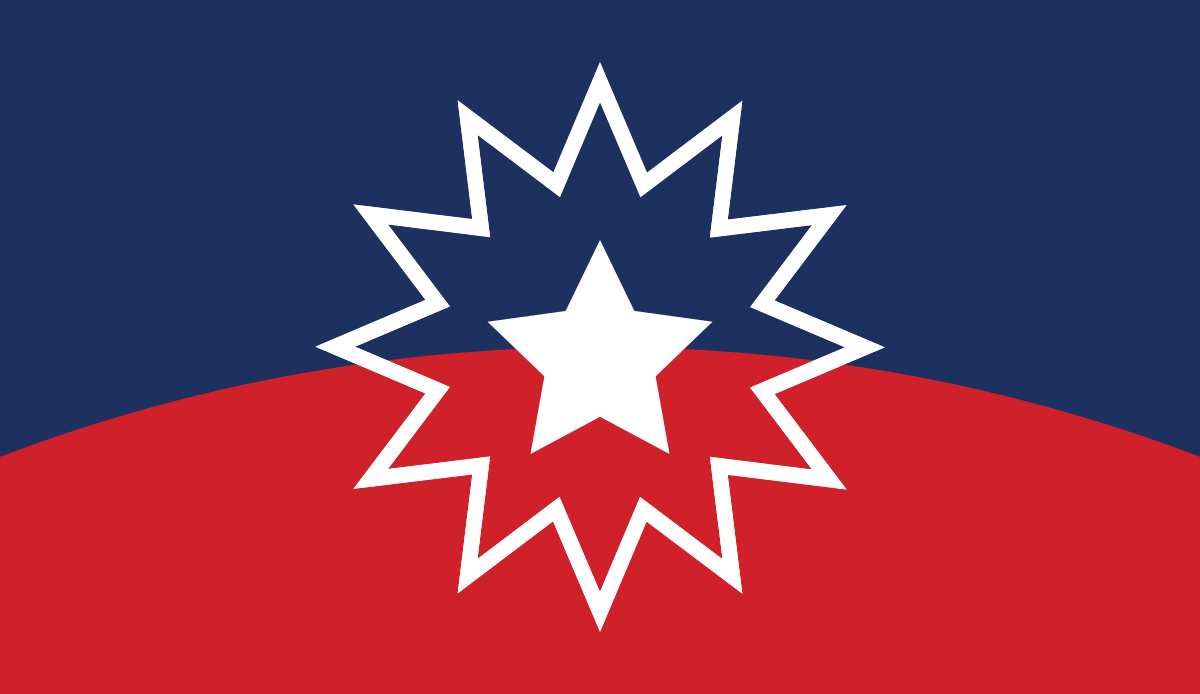
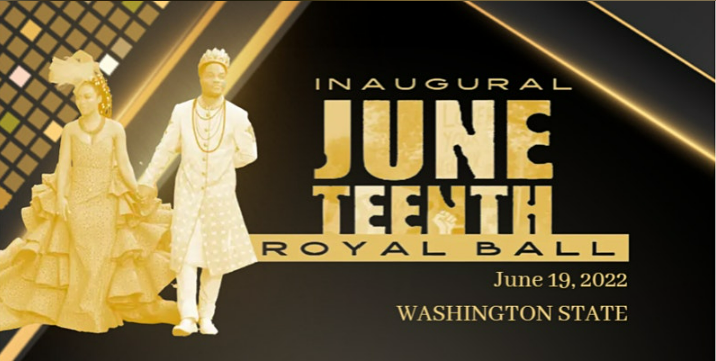
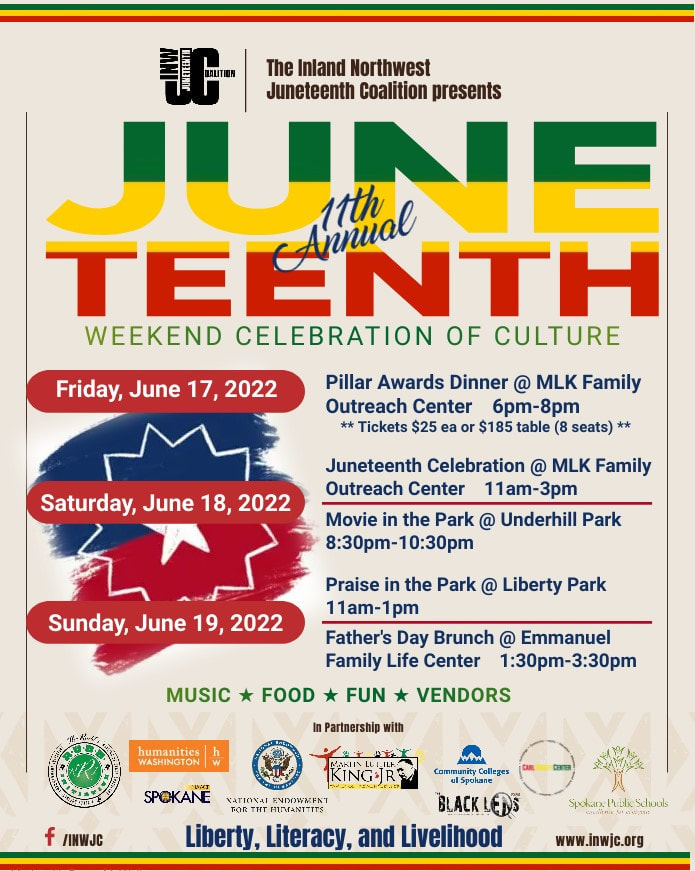
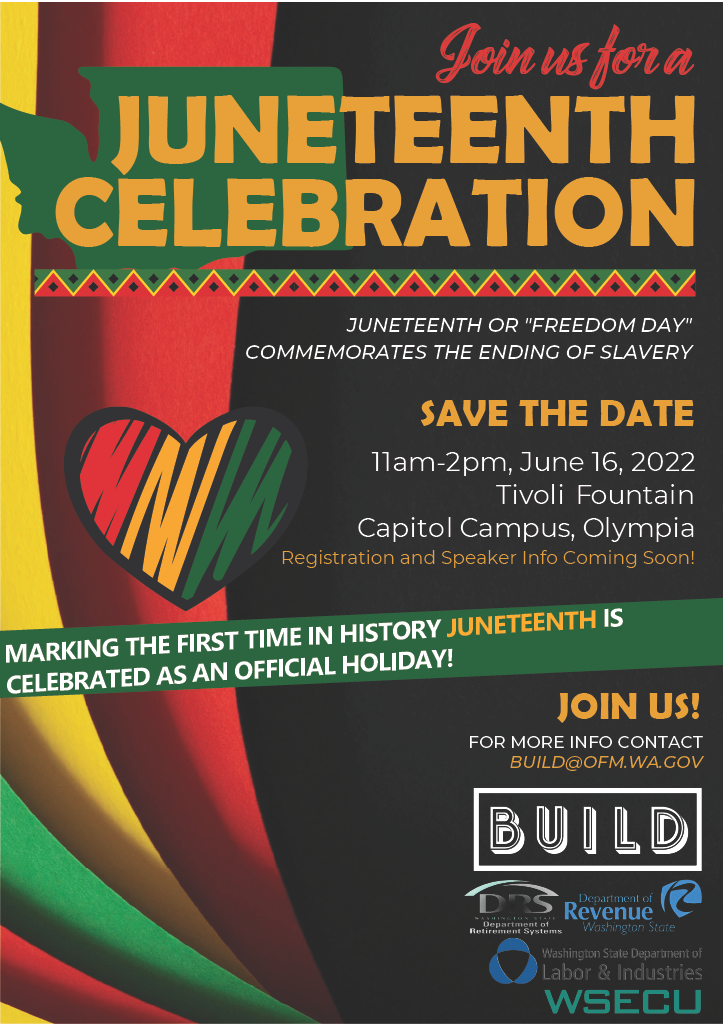
 RSS Feed
RSS Feed